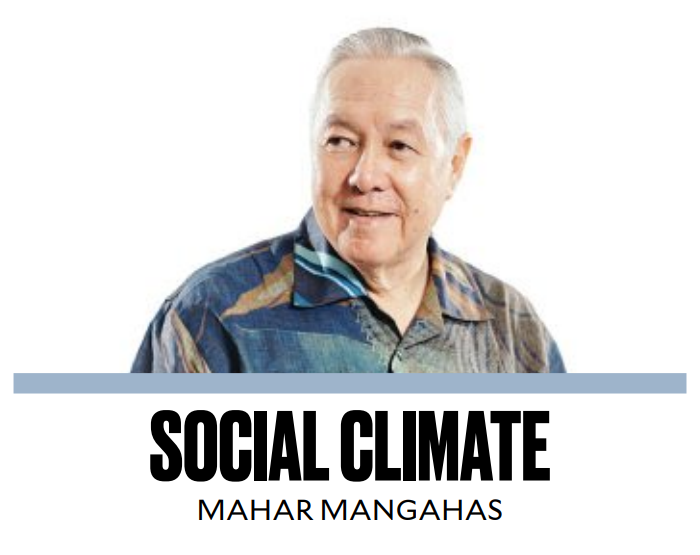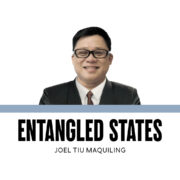Updating economists

The Philippine Economic Society. Your truly is a grizzled, old economist. It was soon after my University of the Philippines (UP) Bachelor of Arts in 1962, major in economics, that I joined the Philippine Economic Society (PES). If that marked me as an economist, then I have been one for three-fourths of my life.
The only surviving original PES member I can think of is Gerardo “Gerry” Sicat. The pioneers I knew well—Armand Fabella, Amado Castro, Benito “Beniting” Legarda Jr., and Jose “Pepe” Encarnacion Jr.—have gone ahead, though Gerry himself is in good shape, having run full marathons in his time, as his successor Arsenio “Arsy” Balisacan still does to this day. But I am good for a slow walk; not on a golf course, but around a pool table.
Amado and Pepe, my teachers, were the first two deans of the UP School of Economics (UPSE, founded in 1965). The whole faculty was on a first-name basis, American-style. Pepe was dean until well after I left my UPSE professorship in 1981—the UPSE building is now Encarnacion Hall—and moved to the Development Academy of the Philippines (DAP) to do surveys, which I continued at Social Weather Stations (SWS) later. All the above served as PES president for a year; mine was 1979.
Gerry Sicat was the first editor of the Philippine Economic Journal (PEJ), forerunner of the present Philippine Review of Economics (PRE). He neatly relieved himself of the job after some years, by passing it on to me; and so, 10 years later, I passed it on to the late UPSE professor Ruperto “Ruping” Alonzo. In our time, the PEJ was awarded as best social science journal by the Philippine Social Science Council.
The 2024 PES Conference (11/7-8/24). The PES has kept its long tradition of meeting in November. On the first day of the 62nd PES annual conference, last Thursday at Novotel hotel, Quezon City, I spoke on “The People’s History of Poverty, Poverty Thresholds and Poverty Gaps,” in order to update people on SWS’ latest economic numbers.
Followers of this column and www.sws.org.ph, whether or not they are economists, are already acquainted with SWS statistics. Professional economists, like PES members, should know that technical details are in “The Social Weather Reports of economic well-being in the Philippines,” PRE, June and December 2018, pp. 41-55.
Thinking that an audience of economists would be impatient for brand-new findings, I started by showing that the survey-based poverty threshold for a family is not proportional to the size of the family. For instance, tripling a family from two to six members does not make its poverty threshold triple from P10,000 to P30,000 per month–in fact it does not even double to P20,000 per month. So, the official practice of setting poverty lines on a per capita basis is unrealistic.
But I discovered that many are still unfamiliar with our system of identifying the poor first, learning their poverty threshold as a second step, and learning their poverty gap as a third step–which gives very realistic and up to date results (up to September 2024 so far) and will continue indefinitely, even without me around.
There’s no good substitute for face-to-face communication. I get to see folks at UP, Ateneo, Neda, DAP, and the Philippine Institute for Development Studies fairly often, but not, for example, those at La Salle, which has a new school of economics, while my former students on its faculty are already retired. There are some World Bank economists based in the Philippines who did not even know about the SWS surveys before they attended the PES conference.
The main handicap of SWS is that it’s not official. It is private, nonprofit but self-supporting, nonpartisan, nonsectarian, with a mission to survey human well-being. It is a tiny counterpart of the highly visible National Bureau of Economic Research (identifier of the business cycle), National Opinion Research Center of the University of Chicago (doer of the US General Social Survey), Transparency International (maker of the Corruption Perceptions Index), and ICPSR (Inter-university Consortium for Political and Social Research, the world’s first survey archive, at the University of Michigan), all private nonprofits.
Ah, no lack of work to do; I’ve not been a day unemployed since UP graduation. Before taking the plunge away from the UPSE faculty in 1981, I already foresaw, correctly, that what I would miss the most would be the talented new students entering each year.
—————-
Contact: mahar.mangahas@sws.org.ph.
Dr Mahar Mangahas is a multi-awarded scholar for his pioneering work in public opinion research in the Philippines and in South East Asia. He founded the now familiar entity, “Social Weather Stations” (SWS) which has been doing public opinion research since 1985 and which has become increasingly influential, nay indispensable, in the conduct of Philippine political life and policy. SWS has been serving the country and policymakers as an independent and timely source of pertinent and credible data on Philippine economic, social and political landscape.





















